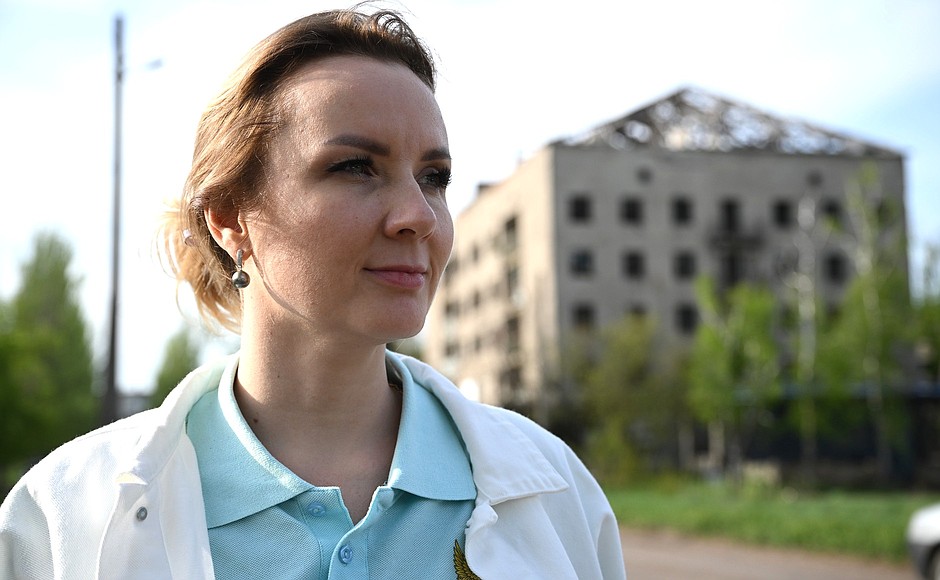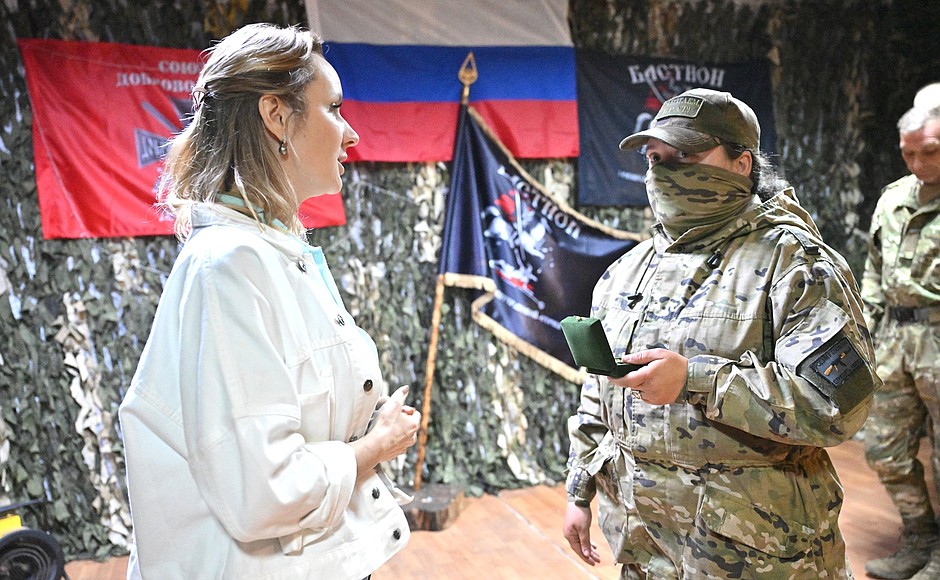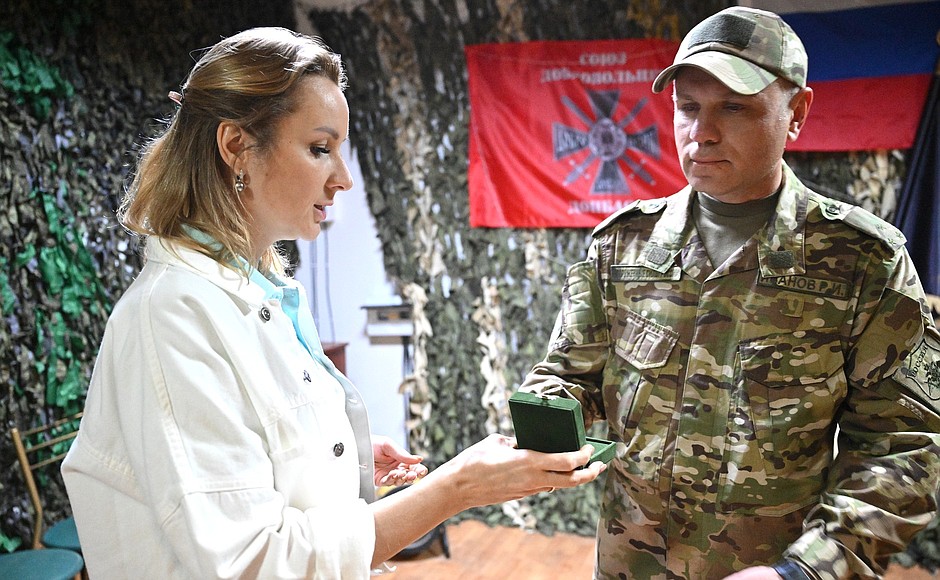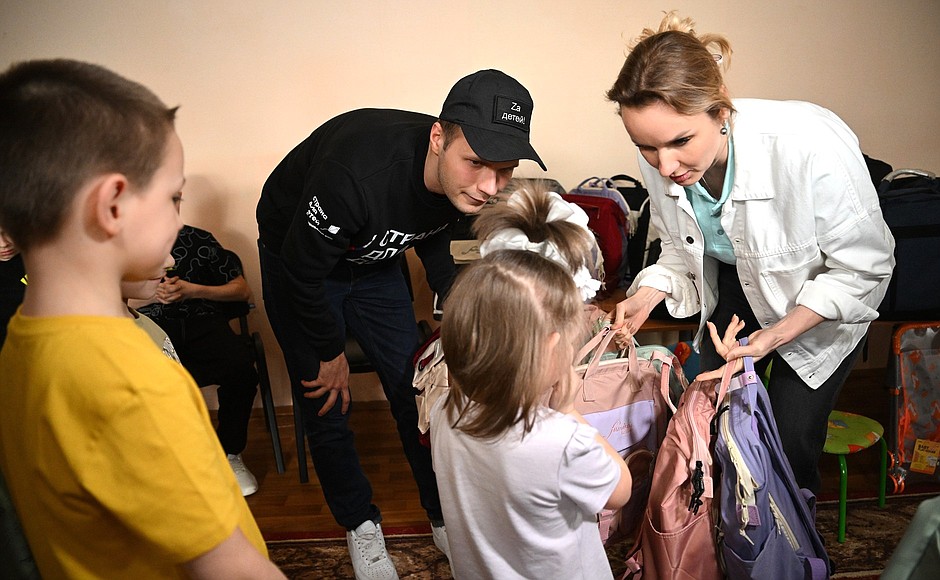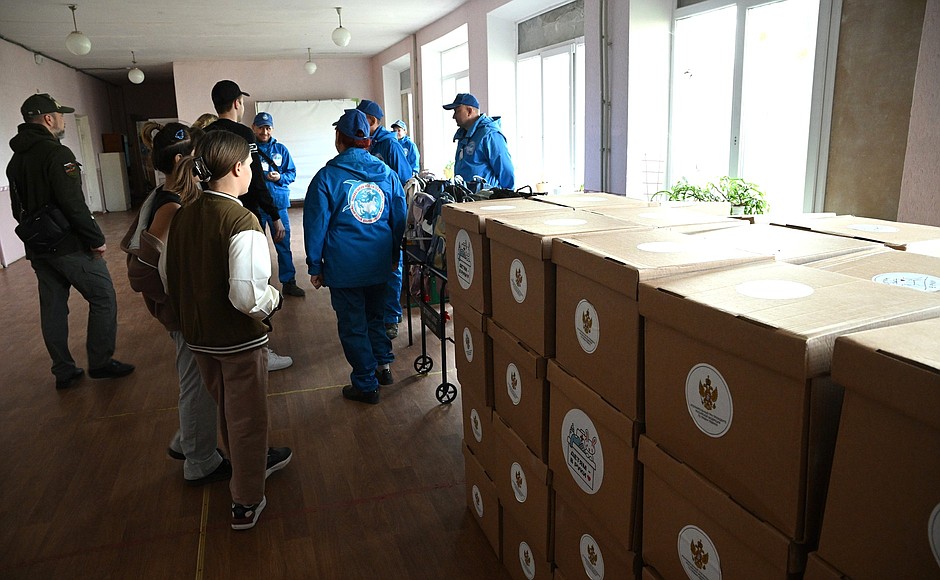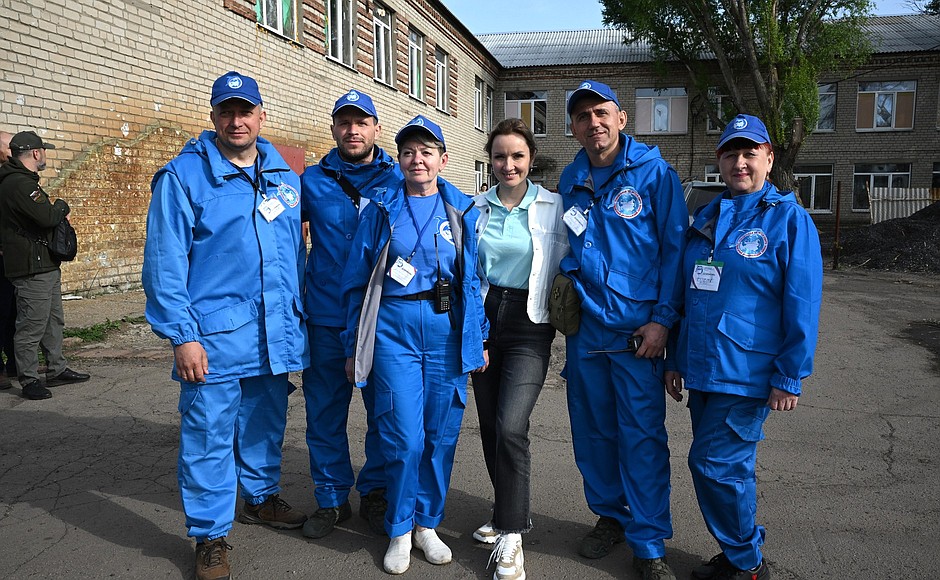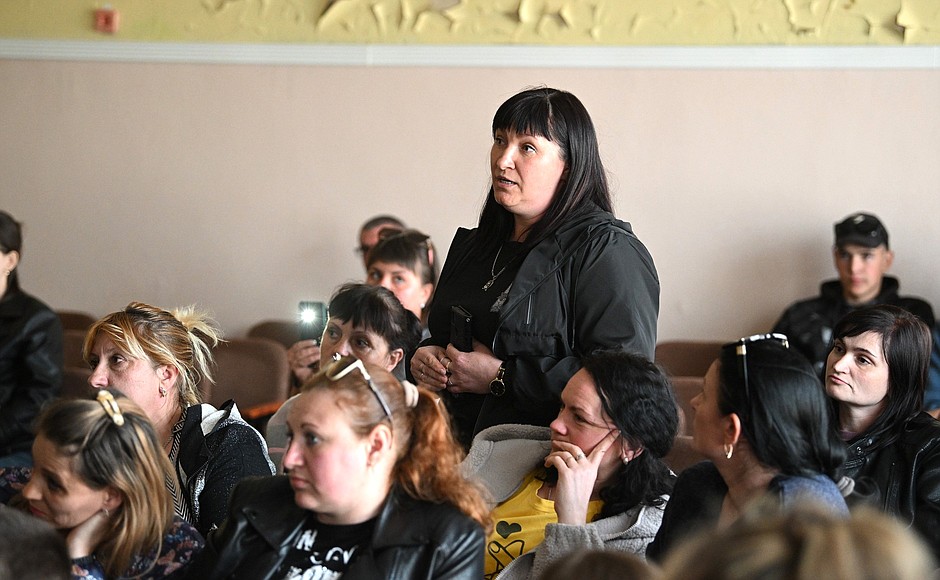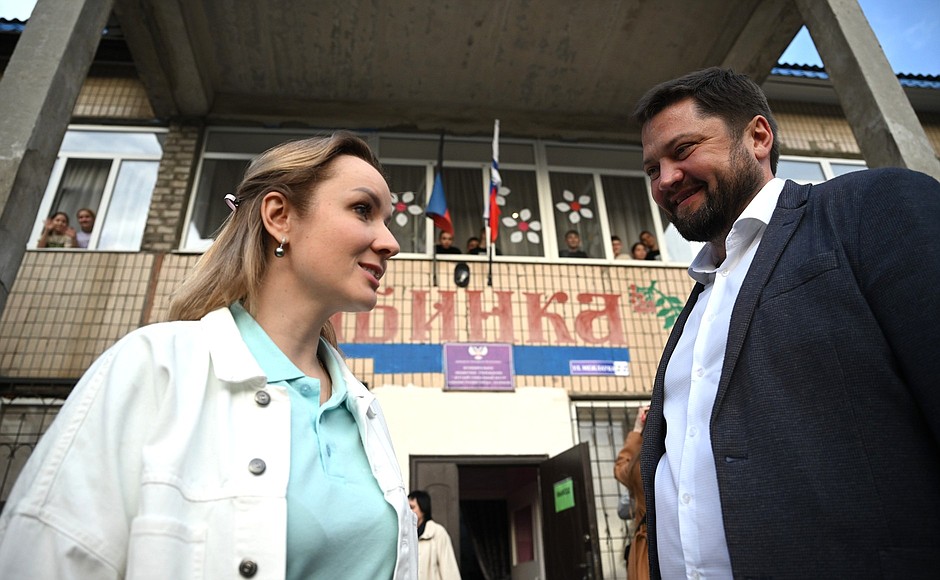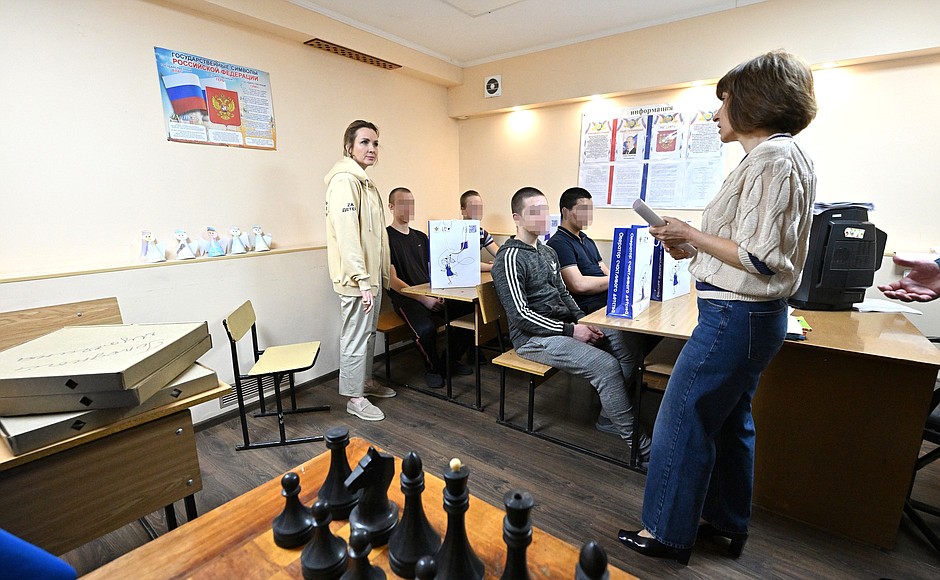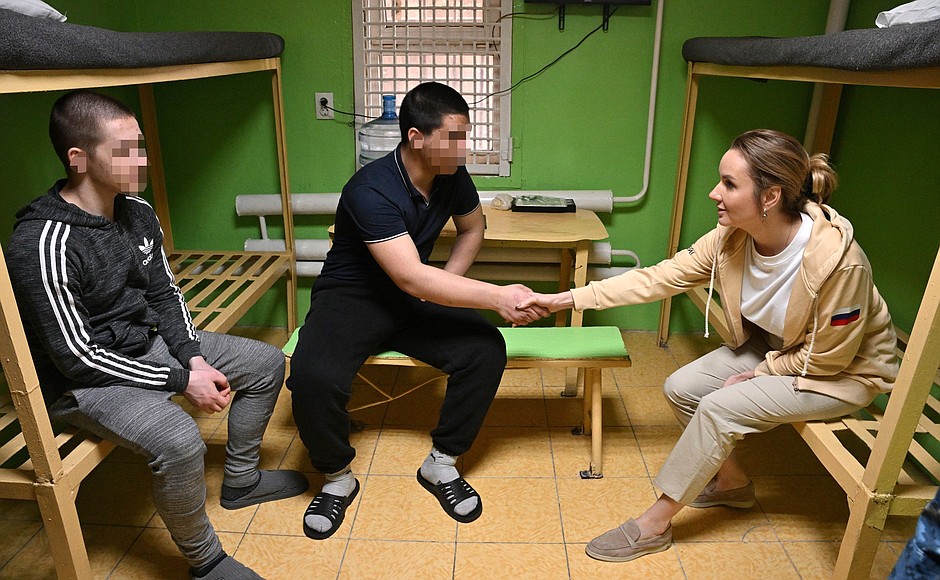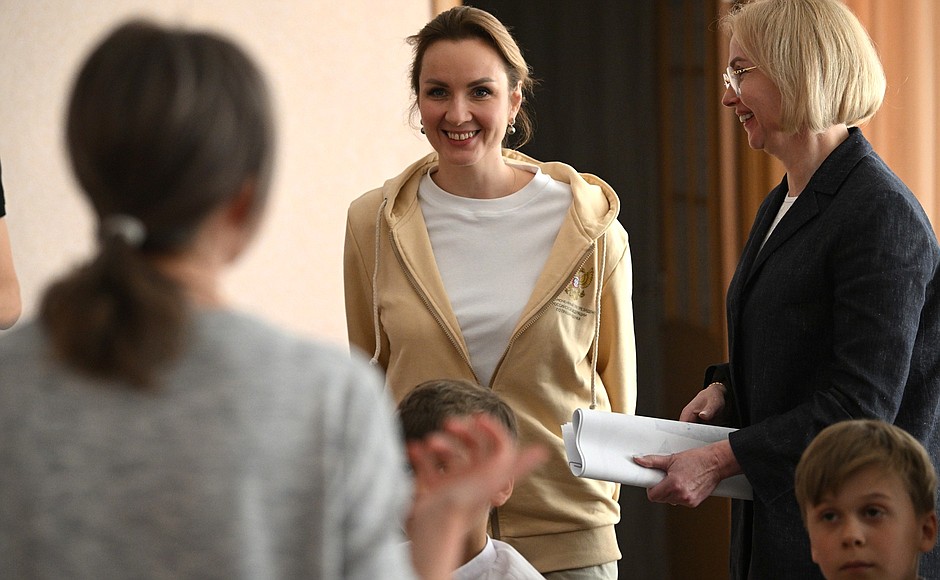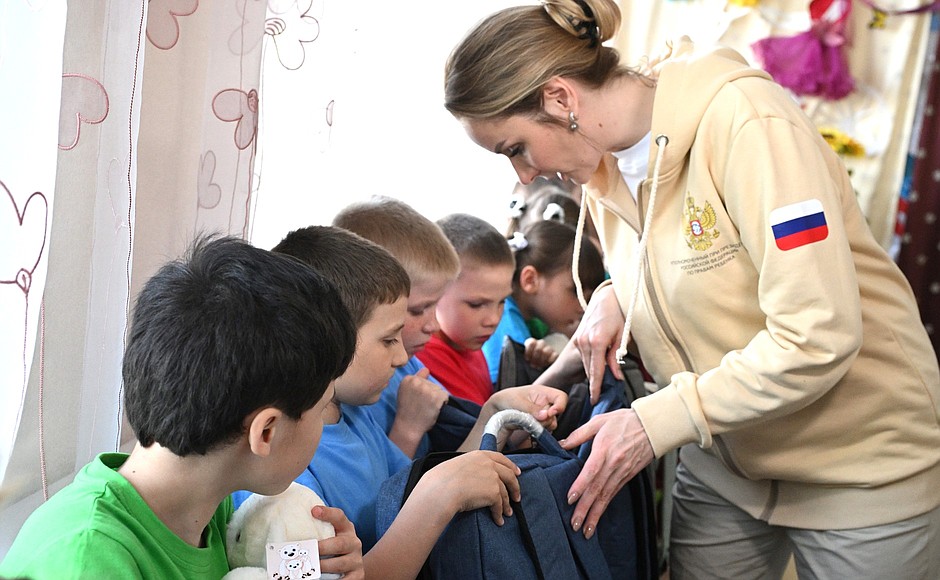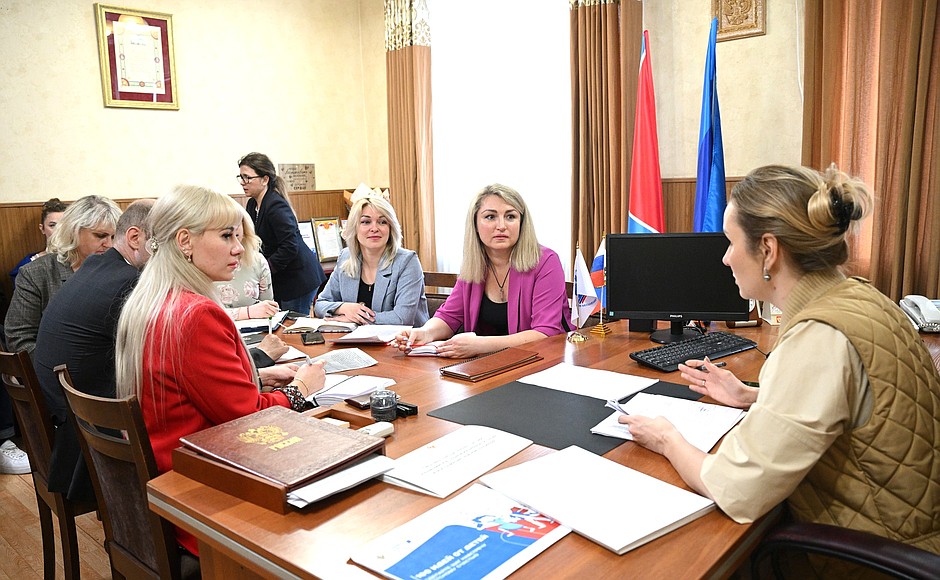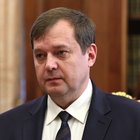In the Donetsk People’s Republic, Maria Lvova-Belova met with participants in the special military operation. She presented the first Defender of Family and Children badges to two military of the DPR for saving children and families with children in the area of hostilities.
In the Year of Family, the Presidential Commissioner for Children’s Rights instituted a special badge that is awarded to officials of federal and local government bodies, employees of security, defence and law-enforcement agencies, institutions, enterprises and organisations, members of public associations and non-profit organisations, individuals and companies for merits in protecting the rights and lawful interests of children in accordance with Russian law. The centre of the badge features a plantlet with three leaves, a symbol of a growing child. It is surrounded by three rings of protection, with engraved core values of childhood, including family, love, trust, development, security, and Motherland.
In addition, the fighters received humanitarian aid – gasoline-powered generators and backpacks with dry rations and basic necessities.
Maria Lvova-Belova is helping the region to build a system for preventing social orphanhood. For this purpose, together with her team, she visited a children’s social shelter in Yenakiyevo. The purpose of the visit was to find out why children had been put in this shelter and how to help their families come back to normal life. She also wanted to tell her colleagues about ways of supporting disadvantaged children. This work is conducted on the territory of all four new regions, and 82 children have been transferred to families, mostly their biological families, since December 2023. The Commissioner also brought to the shelter arts and crafts sets, toys and children’s backpacks.
In cooperation with the Country for the Children charity foundation, Maria Lvova-Belova delivered humanitarian aid to families with children in Novoluganskoye. Its residents received food and children’s backpacks with gifts. Volunteers of the Humanitarian Volunteer Corps from the Khanty-Mansi Autonomous Area – Yugra took part in distributing the aid. At the meeting with families, the Commissioner suggested sending children together with their parents on vacation to a health resort while in the meantime help restore their housing.
By tradition, in Donetsk Maria Lvova-Belova presented gifts to the patients of the children’s unit of the Republican Trauma Centre of the DPR Healthcare Ministry. In Mariupol, she talked to four teenagers under investigation in a pre-trial detention centre and familiarised herself with the conditions of detention.
In the Zaporozhye Region, Maria Lvova-Belova visited the Melitopol Regional Centre for Social and Psychological Rehabilitation of Children. The children received backpacks with sweets and hygiene and leisure kits from the Commissioner while the centre was given the furniture it needed. The majority of children in this institution do not have the status of an orphan or children without parental care. Therefore, specialists will draft an individual family placement plan for every child. The priority is to return children to their biological families.
At Maria-Lvova-Belova’s initiative, a seminar was held in Melitopol as part of the Commissioner’s Children in the Family strategic programme on preventing social orphanhood, developing teenager-parent communities in the region, and promoting Stable Family clubs. Psychologists and counsellors in these clubs help parents at risk or in a difficult life situation to overcome the crisis and cope with persistent problems.
The Commissioner also inspected a building in Melitopol that Zaporozhye Region Governor Yevgeny Balitsky allocated for the country’s first Pulsar centre for teenagers and their parents. The centre will be renovated and outfitted by the Country for the Children charitable foundation. The idea to create the Pulsar centre was born due to the need to continue working with children participating in the Day after Tomorrow rehabilitation sessions, but now together with their families. At the centre, both parents and children will find support for any initiative related to joint leisure, including inventing and implementing useful projects, as well as receiving consultations and advice from assisting specialists. At a meeting with parents and children participating in the Commissioner’s The Day After Tomorrow family session that took place in the Moscow Region in February, ideas for future family sessions and Pulsar centres were discussed. According to Maria Lvova-Belova, there are plans to establish a network of Pulsar centres in all the new regions of the country.
The Children’s Commissioner also attended the opening of a summer cinema hall at the Melitopol centre for teenagers supervised by Adviser to the Governor on Children’s Rights Yulia Sazhayeva. The dream of Zaporozhye teenagers was fulfilled as part of the 100 Ideas from the Children project.
Maria Lvova-Belova also visited the family of Sergei Karpenko, whom she personally helped register guardianship of his three grandchildren as the children’s father had died during the special military operation. She gave the family a TV set, a washing machine and three bicycles.
In the Lugansk People’s Republic, Maria Lvova-Belova held a meeting with representatives of regional executive authorities on how to protect the rights of minors placed under the legal custody of government entities and visited children’s social institutions. Together with representatives of the Country for the Children charitable foundation, the Commissioner donated humanitarian aid – furniture and computers – to the Perevalsk specialised boarding school and Alchevsk orphanage, and a certificate to cover the needs of the Lugansk orphanage. Gifts were also given to the children.
Together with LPR Commissioner for Children’s Rights Inna Shvenk and specialists from prevention agencies, Maria Lvova-Belova studied personal files of 83 children from regional children’s institutions. An individual workplan has been drawn up for each child in order to help them return to families, and to their own families as priority.
